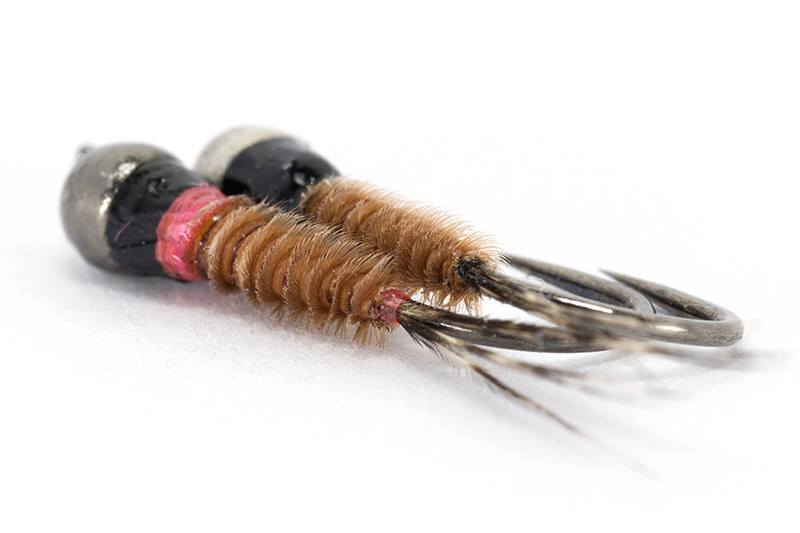
Sometimes late in Autumn time when rivers are very low and crystal clear is very difficult to fish. Normally the outside temperature is low, around 5 Celsius and the insects don’t fly. Grayling can be seen in groups in low fast water and will be difficult to catch. When you see them you are ready detected by all fish. They will not go away due the cold water but will not eat. In this situations you have to adopt French nymphing style also known as “La nymphe à vue”.
Equipment that you need:
- a sensitive 10′ fly fishing rod in size #3 or #4.
- long leaders with delicate strike indicator – we recommend Jaques Boyko leaders for nymph fishing – 4.9m
- very small nymphs
An example how is the Jaques Boyko leaders made by Mouche Devaux Champagnole
Technique:
- First you have to discover the fish. Then, depending of the water – if is fast flowing or very slow you have to cat the fly in front of the fish with aprox 1m or more. The most important thing is not to spoke the fish. A long leader is almost undetectable compared with a standard leader of 9′ and a splashing line on the water.
- Use only one fly nothing more and should be small or very small. What mean small?: A French fisherman will tell you: ” Under #18 or even #22″. Don’t try to use big flies because you will lose precision and don’t forget is not easy to make accurate presentations with long leaders. A big fly will flip- flop a in strange way scarring the fish and the entire zone. French technique is not long nymphing or Czech nymphing with long leaders
- Cast the flies from a position when the fish will not see you. Usually you have to be situated under the fish but is not easy to maintain a good control of the fly. So for the first time I recommend to cast up and across.
- Presentation should be precise and delicate in front of the fish. A wrong perception that I met at a lot of fisherman is a must to have nymphs very close to the bottom. It is wrong. You have to fish the nymph like a natural insect who intend to emerge at the surface or a fly to intend to swim on the side of water current. When the fly arrive in the feeding area you have to “play” the nymph, to jig it a little bit, to make her to swim. To have an idea just look at a baetis swim. You have to try to imitate that swimming.
- Detection of bite is quite difficult, normally you have to stay with your eyes on the fish. When you will see a strange side swimming or you will see for a sec. the red gills that means that the fish opened the mount and took the nymph. In that moment you have to strike gentle and you will have the fish.
- Just an info: a fisherman will notice aprox 2 attacks from 10. So be very focused on drifting the fly and presentation. Every strange movement from the fish is a taken.
I hope these info are clear and will help everybody to wadding in this beautiful way of fishing.
How looks the river parts when I use this technique:
Bellow you can see one of the simple and most productive flies that I use in this time period
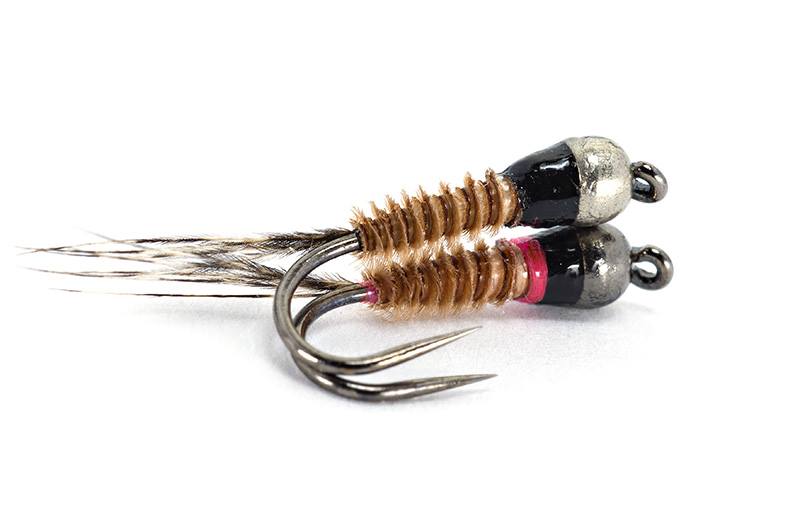


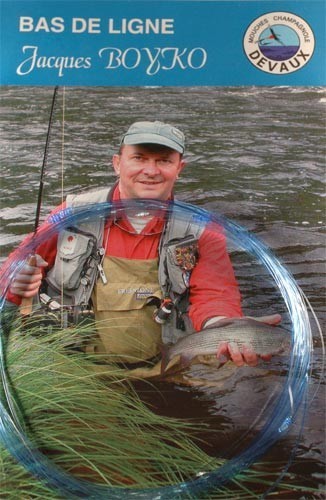
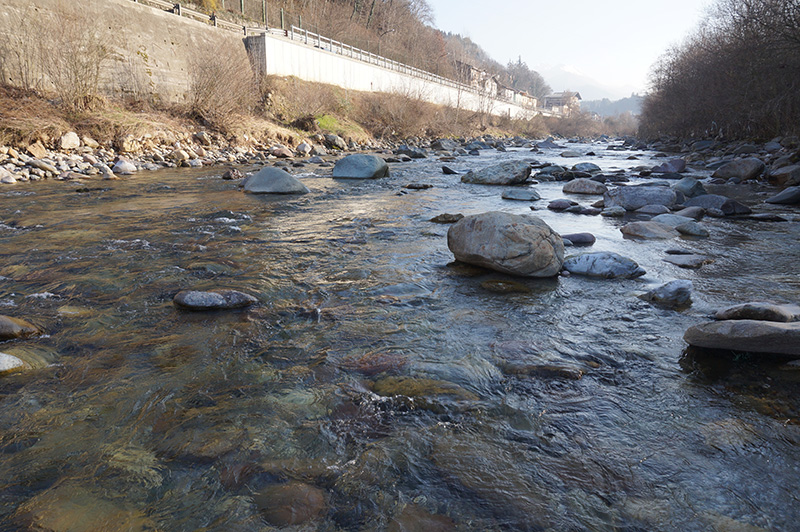
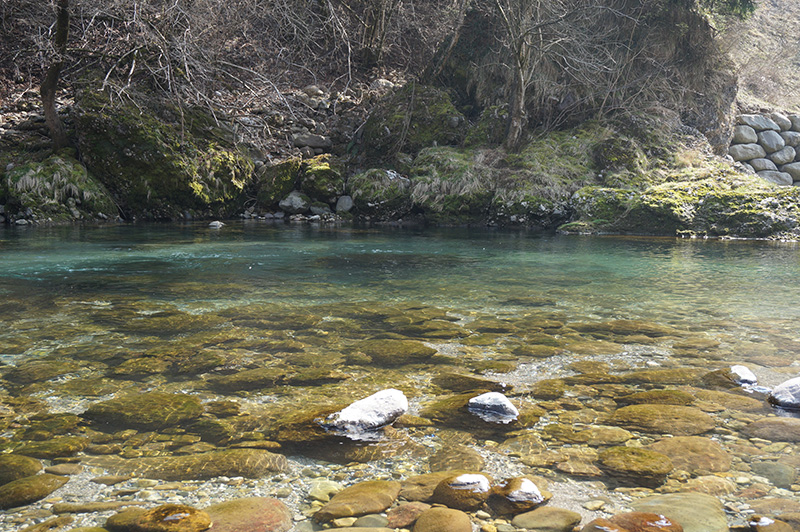
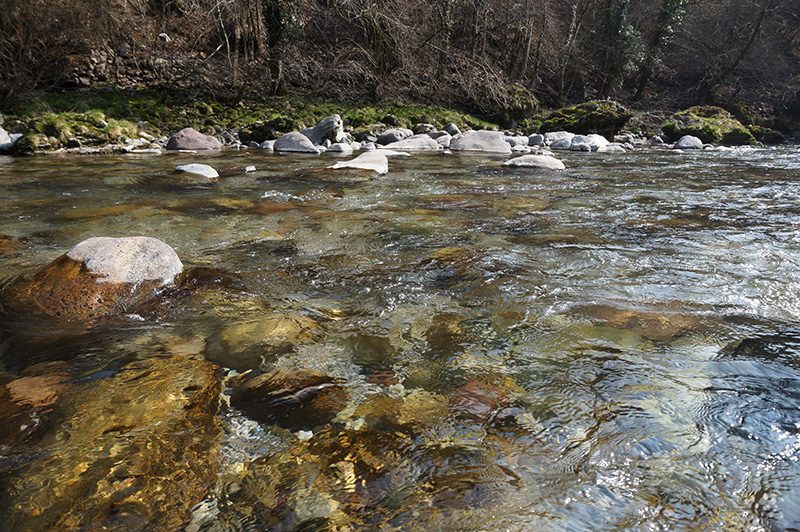
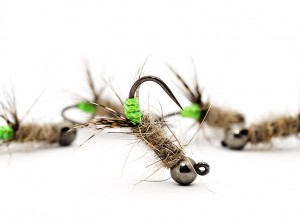
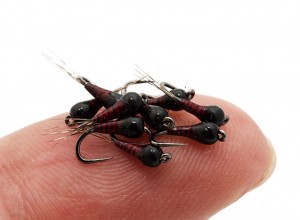
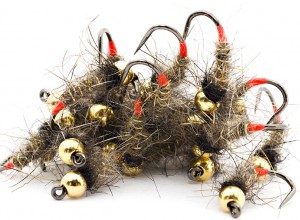
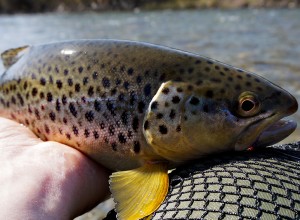
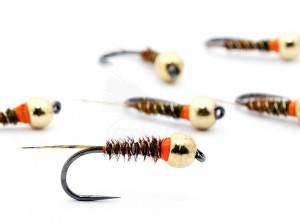
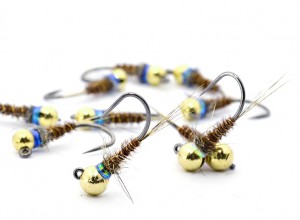
Leave a Reply